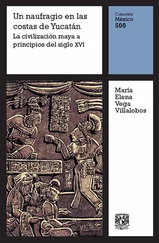It was Mr Pak who converted me back to a defensive midfielder. Defensive midfielder? Convert back? Yes, that’s right. Maya Yoshida wasn’t a natural-born centre-back.
Pre-centre-back era
When I started to play football for fun, I was kicking the ball as if I was a fantasista on the pitch. Everybody did so as a kid, I believe, and I was no exception. I was playing as a striker or a number 10, a star role in my team when I was little. I had no inkling whatsoever of my suitability as a defender. I never ever thought, ‘I’d be good as a defender.’ Even when I watched a game of football, my eyes were drawn to attacking players.
I think it is particularly the case with my generation that, as kids, we preferred playing behind the striker and setting up a goal rather than actually scoring as a forward. We had grown up reading a hugely popular football manga titled ‘Captain Tsubasa’ (a modern Japanese version of the Roy of the Rovers cartoon strip character over here). I was one of numerous Japanese football kids who wanted to play the number 10 role, just as the main character, Tsubasa, did in the manga . When in a one-on-one situation with a goalkeeper, I would rather square the ball nonchalantly for my onrushing team-mate to score than beat the goalie and score myself. That was cool, like Tsubasa, and I loved it.
However, as I grew up and climbed the ladder towards a professional career, my position on the pitch moved further and further back. Now playing as a centre-back, there is only a goalkeeper left behind me. But until I reached around 14 years of age, towards the end of my second year at junior high school, I was a central midfielder. And when Mr Pak became a coach at the Grampus academy he put me back in the middle of the pitch.
Recently, I had a chance to join Kei Yamaguchi, a former defensive midfielder and my senior from my Grampus days at a football clinic held in Japan, and there I discovered that even he and many other seniors at the club thought I’d come up through the youth ranks as a centre-back. Little did they know that I became a professional footballer as a central midfielder.
People see me solely as a centre-back these days, but in my mind I’m always a former midfielder. I believe my experience in an anchor-man role helped me to make a great leap during my youth development. I even think that I couldn’t have become a professional if I hadn’t spent my final two years in the youth team (age 16 to 18) as a defensive midfielder. That is how strongly I feel about the importance to me – in terms of my career – of having formerly been a midfielder.
The fact that I’m comfortable with my allegedly weaker left foot, a trait more common among midfielders than defenders, however, has more to do with the fact that I’ve always tried to be two-footed since I was a kid. In my elementary-school days I used to practise using a slope near my home. I kicked a ball up from the bottom of the slope and when the ball was rolling down back I controlled it and kicked it again. I repeated this over and over again, using my right and left foot in turn.
My background as a defensive midfielder still influences how I play today. As a centre-back, when I have to deal with the ball either with my foot or my head, I usually try to check my team-mates’ positions around me and make a pass rather than a mere clearance, if possible. That awareness of space and the position of a team-mate comes from being a defensive midfielder.
I also know from experience that it will be really tough for a defensive midfielder if a clearance by a centre-back gives the ball straight back to the opponents. My teammates’ workload depends on whether or not we can build up from the back line after stopping the opponent’s attack. If I can feed the ball to a team-mate, it gives the whole team time to move forwards rather than retreating to defend again.
That’s just a small part of what we defenders do but it’s the sort of detail that can make a huge difference in terms of how a game goes and how tired team-mates become. When I started watching games on DVD, I realised that good Premier League players always care about such details. Those viewing sessions were very beneficial for someone like me, adept at learning simply through observation.
Players I admired – and hugely optimistically started looking forward to playing with on the same pitch, whether as a team-mate or an opponent – were also mainly midfielders, such as Steven Gerrard, Frank Lampard or Claude Makélélé. Gerrard and Lampard were especially influential for me. I thought they were a class apart even among the other accomplished Premier League players of that era.
Playing in central midfield gives you a different view of the pitch from the one you get in the middle of the defensive line. As a centre-back, your view is basically locked in on what is going on ahead of you, while as a central midfielder you need a much wider range of vision. You get pressure from your opponents from the side or behind as well as in front. At first, when playing in that role, there were times when the ball was nicked off me by someone whom I wasn’t paying enough attention to. But once you get used to playing in the middle of the pitch, you start enjoying it more, too. I felt it was fun to initiate an attack from a deep-lying position. Also, it felt good every time I sniffed danger and stopped the opponent’s attack before it actually developed.
In midfield, I also found that I could polish what I had been trying to equip myself to do since I started kicking a ball with my brothers and their friends, such as developing complete control of the ball and learning to think quickly in order to beat older, more developed opponents. That, I think, is why Mr Pak put me back in midfield – to improve my technique and awareness.
Beginning of the long-distance hurdle race
The role I was given by Mr Pak in the Grampus youth team was that of anchor-man – a one-man shield for the back line. While I was learning and performing in that pivotal role between the team’s attack and defence, I was also named team captain. My character – naturally positive but objective and realistic at the same time – no doubt contributed to me getting the armband.
By the end of the season I led the Grampus Under-18 team to just one win away from being crowned as the national champions in the 2006 Prince Takamado Trophy All Japan Youth Football League, in which professional clubs’ youth sides competed with high-school football teams. That professional club involvement distinguished the tournament from the two other major domestic youth tournaments in Japan, namely the All Japan High School Soccer Tournament and the Inter High School Sports Festival (Football). In the tournament proper, 24 teams who came through regional qualifiers were divided into six groups of four in the first round, and then the top two teams in each group competed in the knockout stage to reach the summit of the Japanese domestic youth football world.
We lost to a team from Takigawa Dai-ni High School in the final, but my performance in the tournament as an anchor-man wearing the captain’s armband didn’t go unnoticed by my coaches. By then I had already occasionally been invited to first-team practice sessions at Grampus. I don’t think my overall physical strength really stood out among my professional seniors, but I believe the coaches thought I was worth taking a closer look at in the first-team environment because of my height and ability to build up from the back. When I joined the academy at the age of 12, I was in awe of players around me such as the ‘Big Four’, the four team-mates who were regularly called up to join the team in the higher age group, but now I felt I had a chance of being promoted from the youth to the first team at Grampus.
Читать дальше






![Джон Харгрейв - Mind Hacking [How to Change Your Mind for Good in 21 Days]](/books/404192/dzhon-hargrejv-mind-hacking-how-to-change-your-min-thumb.webp)





